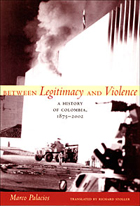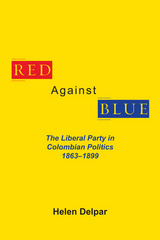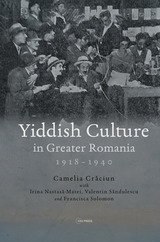3 books about 1886-1903

Between Legitimacy and Violence
A History of Colombia, 1875–2002
Marco Palacios
Duke University Press, 2006
Between Legitimacy and Violence is an authoritative, sweeping history of Colombia’s “long twentieth century,” from the tumultuous civil wars of the late nineteenth century to the drug wars of the late twentieth. Marco Palacios, a leading Latin American historian, skillfully blends political, economic, social, and cultural history. In an expansive chronological narrative full of vivid detail, he explains Colombia’s political history, discussing key leaders, laws, parties, and ideologies; corruption and inefficiency; and the paradoxical nature of government institutions, which, while stable and enduring, are unable to prevent frequent and extreme outbursts of violence. Palacios traces the trajectory of the economy, addressing agriculture (particularly the economic significance of coffee), the development of a communication and transportation infrastructure, industrialization, and labor struggles. Palacios also gives extensive attention to persistent social inequalities, the role of the Catholic Church, demographic shifts such as urbanization and emigration, and Colombia’s relationship with the United States. Offering a comparative perspective, he frequently contrasts Colombia with other Latin American nations. Throughout, Palacios offers a helpful interpretive framework, connecting developments with their causes and consequences. By thoroughly illuminating Colombia’s past, Between Legitimacy and Violence sheds much-needed light on the country’s violent present.
[more]

Coffee and Conflict in Colombia, 1886-1910
Charles W. Bergquist
Duke University Press, 1978
The appearance of Coffee and Conflict in Colombia, 1886-1910, had several important consequences for the entire field of Latin American history, as well as for the study of Colombia. Through Bergquist's analysis of this transitional period in terms of what has been called the dependency theory, he has left his mark on all subsequent studies in Latin American affairs; questions of economic development and political alignment cannot be dealt with without confronting Bergquist's work. he has also provided a major contribution to Colombian history by his examination of the growth of the coffee industry and Thousand Days War.
[more]

Red Against Blue
The Liberal Party in Colombian Politics, 1863 - 1899
Helen Delpar
University of Alabama Press, 1981
“Delpar provides a history of Colombia’s liberal party covering a period in which it was first the dominant party (1863-1885) and then the party of opposition (1886-1899). Delpar’s study is well written and firmly grounded in extensive research [and] will occupy a prominent position in the sparse historiography of the late 19th century Colombia.” – Hispanic American Historical Review (HAHR)
“Delpar has given us a book that is disarmingly unpretentious yet offers considerably more than the title implies. As a discussion of the Liberal Party during the latter part of the 19th century, it is more narrative and descriptive than theoretical and analytical, indeed quite free of both redundant conceptualization and overly self-conscious methodology.
“It pays due attention to historical origins, regional distribution of support the characteristics of Liberal leadership, Liberal doctrine such as it was, the rules of the political game under the constitution of 1863, and the Liberal’s adjustment to opposition status after their fall from power in the 1880s. The author’s tone is clear and she has used an impressive quantity of published sources plus the personal papers of a good number of prominent Liberals.
“It pays due attention to historical origins, regional distribution of support the characteristics of Liberal leadership, Liberal doctrine such as it was, the rules of the political game under the constitution of 1863, and the Liberal’s adjustment to opposition status after their fall from power in the 1880s. The author’s tone is clear and she has used an impressive quantity of published sources plus the personal papers of a good number of prominent Liberals.
[more]
READERS
Browse our collection.
PUBLISHERS
See BiblioVault's publisher services.
STUDENT SERVICES
Files for college accessibility offices.
UChicago Accessibility Resources
home | accessibility | search | about | contact us
BiblioVault ® 2001 - 2025
The University of Chicago Press









